NATO Warns Libyan Rebels Not To Attack Civilians
The conflict between the stated desire to see Muammar Gaddafi removed from power and the actual authority granted by UNSCR 1973 is becoming readily apparent:
WASHINGTON — Members of the NATO alliance have sternly warned the rebels in Libya not to attack civilians as they push against the regime of Col. Muammar el-Qaddafi, according to senior military and government officials.
As NATO takes over control of airstrikes in Libya and the Obama administration considers new steps to tip the balance of power there, the coalition has told the rebels that the fog of war will not shield them from possible bombardment by NATO planes and missiles, just as the regime’s forces have been punished.
“We’ve been conveying a message to the rebels that we will be compelled to defend civilians, whether pro-Qaddafi or pro-opposition,” said a senior Obama administration official. “We are working very hard behind the scenes with the rebels so we don’t confront a situation where we face a decision to strike the rebels to defend civilians.”
The warnings, and intense consultations within the NATO-led coalition over its rules for attacking anyone who endangers innocent civilians, come at a time when the civil war in Libya is becoming ever more chaotic, and the battle lines ever less distinct. They raise a fundamental question that the military is now grappling with: Who in Libya is a civilian?
In the early days of the campaign, the civilian population needing protection was hunkered down in cities like Benghazi, behind a thin line of rebel defenders who were easily distinguishable from the attacking government forces.
That is no longer always the case. Armed rebels — some in fairly well-organized militias, others merely young men who have picked up rifles to fight alongside them — have moved out of Benghazi in an effort to take control of other population centers along the way, they hope, to seizing Tripoli.
Meanwhile, fresh intelligence this week showed that Libyan government forces were supplying assault rifles to civilians in the town of Surt, which is populated largely by Qaddafi loyalists. These civilian Qaddafi sympathizers were seenchasing rebel forces in nonmilitary vehicles like sedans and trucks, accompanied by Libyan troops, according to American military officers.
The increasing murkiness of the battlefield, as the freewheeling rebels advance and retreat and as fighters from both sides mingle among civilians, has prompted NATO members to issue new “rules of engagement” spelling out when the coalition may attack units on the ground in the name of protecting civilians.
It was unclear how the rules are changing — especially on the critical questions surrounding NATO’s mandate and whether it extends to protecting rebels who are no longer simply defending civilian populated areas like Benghazi, but are instead are themselves on the offensive.
“This is a challenge,” said a senior alliance military officer. “The problem of discriminating between combatant and civilian is never easy, and it is compounded when you have Libyan regime forces fighting irregular forces, like the rebel militias, in urban areas populated by civilians.”
The challenge would seem to only become greater if the rebels do manage to return to the outskirts of Surt, or even to Tripoli itself. At that point, we’ll likely be dealing with an urban war not unlike Somalia and it would be exceedingly unclear exactly who it is we’re supposed to be protecting. This has the potential to get much more difficult, and much messier.


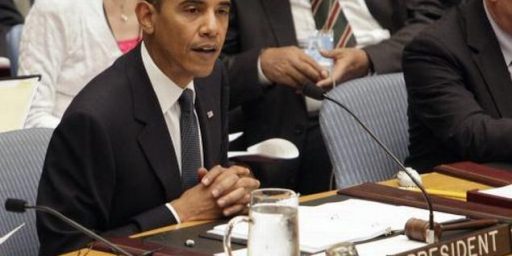
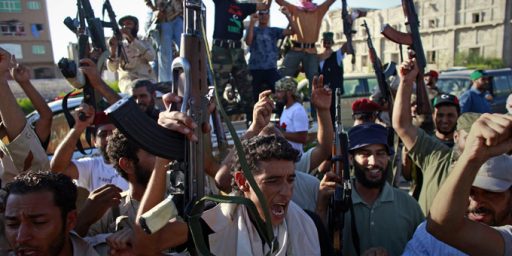
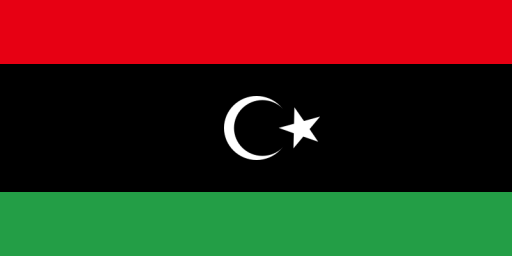
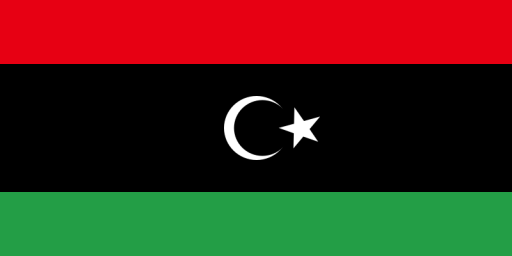
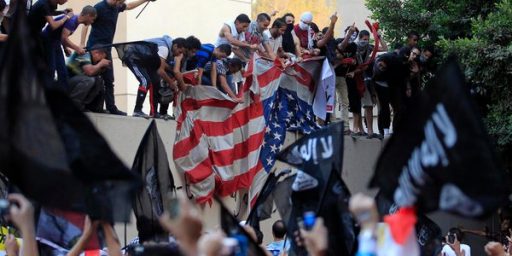
You may recall that I mentioned this likelihood after reading Res.1973 for the first time. The most obvious reading suggests that the coalition (NATO?) forces would be obligated to fire on rebels if they started shooting their rockets into cities.